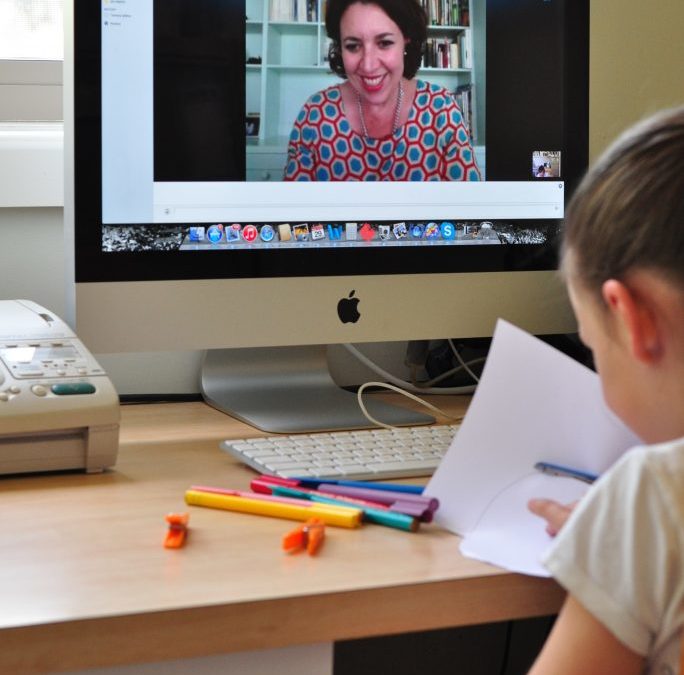Resilience is the cornerstone of thriving in a world rife with uncertainties. It’s our capacity to endure and grow through life’s trials and tribulations. This article explores uncovering and nurturing this inner strength and lays out essential strategies for building resilience for emotional wellbeing.
Key Takeaways
- Resilience is essential for emotional wellbeing. It enables individuals to cope with adversity and stress while maintaining a positive outlook on life, and it can be improved with deliberate practice.
- Building resilience involves enhancing self-awareness, cultivating positive relationships, adopting healthy lifestyle habits, and seeking professional support through resources like online therapy services.
- Parents play a critical role in developing children’s resilience by creating open lines of communication, encouraging problem-solving skills, and fostering an environment of trust and independent thinking.
Why Resilience is Important
Resilience isn’t merely a popular term; it’s an indispensable element of our emotional arsenal, equipping us to navigate life’s hurdles and sustain effective functioning amidst adversity. Imagine it as the steadfast anchor that secures us, ensuring we remain composed even as life’s storms threaten to disrupt our emotional equilibrium. Individuals endowed with resilience don’t simply endure hardships; they frequently come out on the other side stronger, experiencing enhanced wellbeing and greater life satisfaction.
This ability to recover from setbacks, whether professional disappointments or the intricacies of personal loss, enables us to recognise our emotions and manage stress effectively, paving the way for a rewarding life despite the unavoidable challenges that arise.
Moreover, fostering resilience from a young age is crucial. For children, developing resilience equips them to confront challenges confidently, adapt to change more easily, and embrace failure as a stepping stone to success. This early foundation promotes emotional health and cultivates a mindset prepared for lifelong learning and growth.
What is Resilience?
Resilience is the ability to cope with uncertainty, challenges, and adversity. It involves the inner strength to recover from setbacks and grow from experiences. Emotionally resilient people have self-belief, self-compassion, and enhanced cognition, which are essential for a fulfilling life. Resilience theory suggests that resilience is both a journey and a destination, reflecting a combination of behaviours, thoughts, and actions that can be nurtured and improved over time.
The Role of Resilience in Emotional WellBeing and Its Importance in Childhood Development
Emotional resilience is fundamental to overall wellbeing and plays a crucial role in childhood development. For children, the foundation of emotional resilience lays the groundwork for navigating the complexities of social interactions and academic pressures from an early age. It equips them with the tools to confidently face challenges, recover from setbacks, and learn from experiences.
As children develop emotional resilience, they cultivate a sense of mastery and self-efficacy, which are vital for their emotional and psychological growth. Building resilience in children involves teaching them coping strategies, encouraging problem-solving skills, and providing a supportive environment where their feelings are acknowledged and validated. This holistic approach ensures that children grow into well-prepared adults to handle life’s ups and downs with grace and strength.
Developing Resilience: Key Strategies and Techniques
The construction of resilience demands proactive efforts, a dedication towards self-improvement, and strategies that amplify our ability to handle stress. It’s about understanding what we can control and viewing crises as obstacles and opportunities for growth.
Enhance Self-Awareness
Enhancing self-awareness is not just crucial for adults, it also plays a significant role in children’s development. For children, developing self-awareness helps them understand their own emotions and reactions, fostering a sense of empathy and social awareness from an early age. Engaging children in activities that promote reflection on their feelings and actions, such as mindful practices or expressive arts, supports their emotional intelligence. This foundation not only aids in their personal growth but also in building resilience against challenges.
Cultivate Positive Relationships
The people we surround ourselves with can be the scaffolding that supports our emotional resilience. Social support acts as a buffer against stress, where meaningful connections provide:
- Perspective
- Strength
- Encouragement
- Understanding
These are all essential in overcoming challenges, building emotional resilience, and coping with emotional pain.
Fostering positive relationships is even more critical for children. As they grow, the bonds they form with family, friends, and mentors play a pivotal role in shaping their emotional and social development. These relationships offer a sense of security and belonging and teach children how to interact with the world around them.
By valuing relationships and becoming part of companionable groups, we can uncover fresh wellsprings of hope and joy, crucial for constructing resilience.
Embrace Healthy Lifestyle Habits
Embracing healthy lifestyle habits significantly impacts our overall wellbeing, which is deeply interconnected with our physical health and emotional resilience. Incorporating self-care practices such as engaging in consistent physical activity, maintaining a balanced diet, and ensuring proper sleep can greatly enhance our physical capabilities to manage stress.
Instilling these healthy habits early on is crucial for children’s development and long-term health. Encouraging regular physical activity, teaching the value of nutritious eating, and establishing consistent sleep routines can lay a foundation for strong physical and emotional resilience. This foundation supports children in navigating the complexities of growing up, enabling them to approach life’s hurdles with confidence and resilience.
Therapy Connect: Personalised Online Support for Building Resilience
Therapy Connect offers online support for building resilience. It brings professional mental health therapy support right to your doorstep, making it easier than ever to build resilience. Whether you reside in a rural location or are unable to access conventional therapy, Therapy Connect serves as a lifeline, delivering prompt and efficient online therapy that promotes resilience and emotional wellbeing.
Services Offered by Therapy Connect
At Therapy Connect, we offer a range of online services, including:
These services are tailored to meet individual needs and are supported by research partnerships with The University of Sydney and the University of Queensland.
Benefits of Online Therapy
Online therapy offers several benefits, including:
- Flexibility and convenience
- Access to specialised treatment options beyond local availability
- Privacy and confidentiality
- Cost and time savings associated with travel
These advantages make online therapy an excellent option for individuals who may feel judged in their small communities or face other obstacles to traditional therapy. Schedule your consultation today!
Tips for Parents: Helping Children Build Resilience
As the builders of children’s emotional world, parents play an instrumental role in helping their offspring develop resilience and manage stress. By creating a stable environment and encouraging problem-solving and independent thinking, parents can lay a strong foundation for their children’s future.
Encourage Open Communication
Uninhibited family communication lays the foundation of trust and comprehension, which is vital for fostering resilience in children. Through regular family meetings and honest discussions, parents can foster a communicative environment that enables children to:
- Express their feelings and concerns
- Share their thoughts and ideas
- Seek support and guidance
- Build their resilience
Teach Problem-Solving Skills
Imparting problem-solving skills to children is like giving them a resilience toolkit. Parents can enhance their children’s adaptive mindset and resilience by teaching them to approach challenges with a focus on solutions and viewing obstacles as opportunities for growth.
Assigning age-appropriate responsibilities and encouraging recognition of personal strengths fosters their independence and problem-solving capabilities.
Frequently Asked Questions
What exactly is resilience?
Resilience is coping with adversity, recovering from setbacks, and adapting to challenges while maintaining emotional wellbeing.
How can I build resilience in my daily life?
To build resilience in your daily life, focus on enhancing self-awareness, cultivating positive relationships, maintaining healthy lifestyle habits, and seeking professional support if needed. This can help you navigate challenges and bounce back from adversity.
Can resilience be learned, or is it a natural trait?
Yes, resilience can be learned with the proper guidance and commitment, as it involves behaviours, thoughts, and actions that anyone can develop.
How does Therapy Connect help in building resilience?
Therapy Connect helps build resilience by offering customised online therapy services, including psychology, making professional support accessible even in remote locations.
What role do parents play in helping their children become resilient?
Parents play a crucial role in helping their children become resilient by creating a stable and supportive environment, encouraging open communication, and teaching problem-solving skills. These efforts foster resilience in children and help them navigate challenges effectively.
Final Thoughts
In life, the threads of resilience weave strength, adaptability, and emotional wellbeing patterns. We have explored the many facets of resilience, from its definition and significance to strategies for nurturing it within ourselves and our loved ones. Resilience is not an innate trait but a skill that can be cultivated, offering a beacon of hope for a more robust and fulfilling life. Schedule a consultation with Therapy Connect today.




